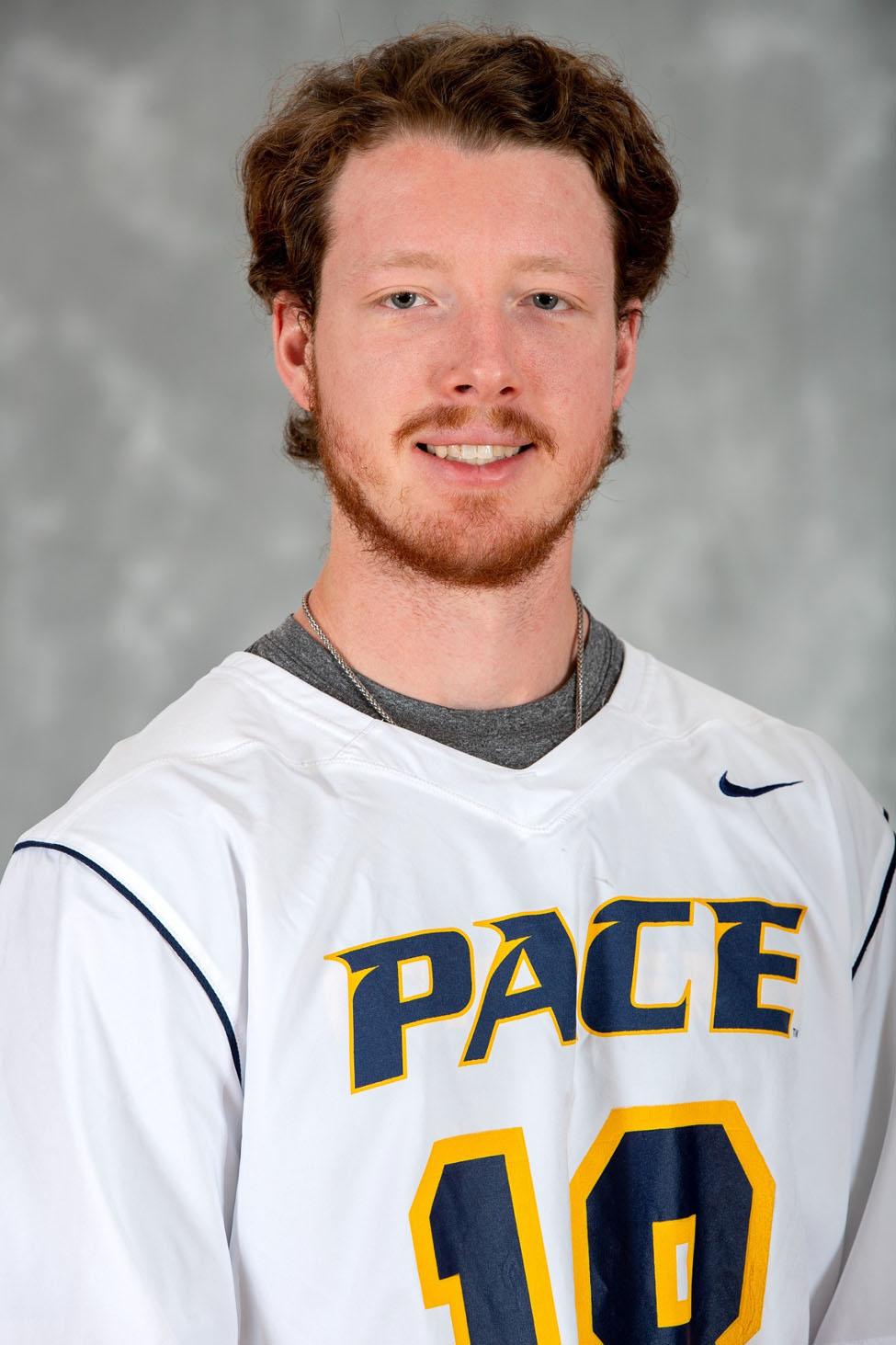
Scripps News: Professor Alexander K.A. Greenawalt Discusses ICC Arrest Warrant on Putin
Pace University’s Haub Law Professor Alexander K.A. Greenawalt speaks with Scripts News about the International Criminal Court arrest warrant issued for Russian President Vladimir Putin.
New Provost Named at Pace University
Following a national search, Joseph R. Franco, Ph.D., has been appointed provost and executive vice president for academic affairs at Pace University. A nationally licensed mental health counselor and clinical supervisor, he has held an array of leadership and faculty roles during his 36-year tenure at Pace. Most recently, he served as interim provost since August following the departure of Vanya Quiñones, Ph.D., who became president of California State University, Monterey Bay.
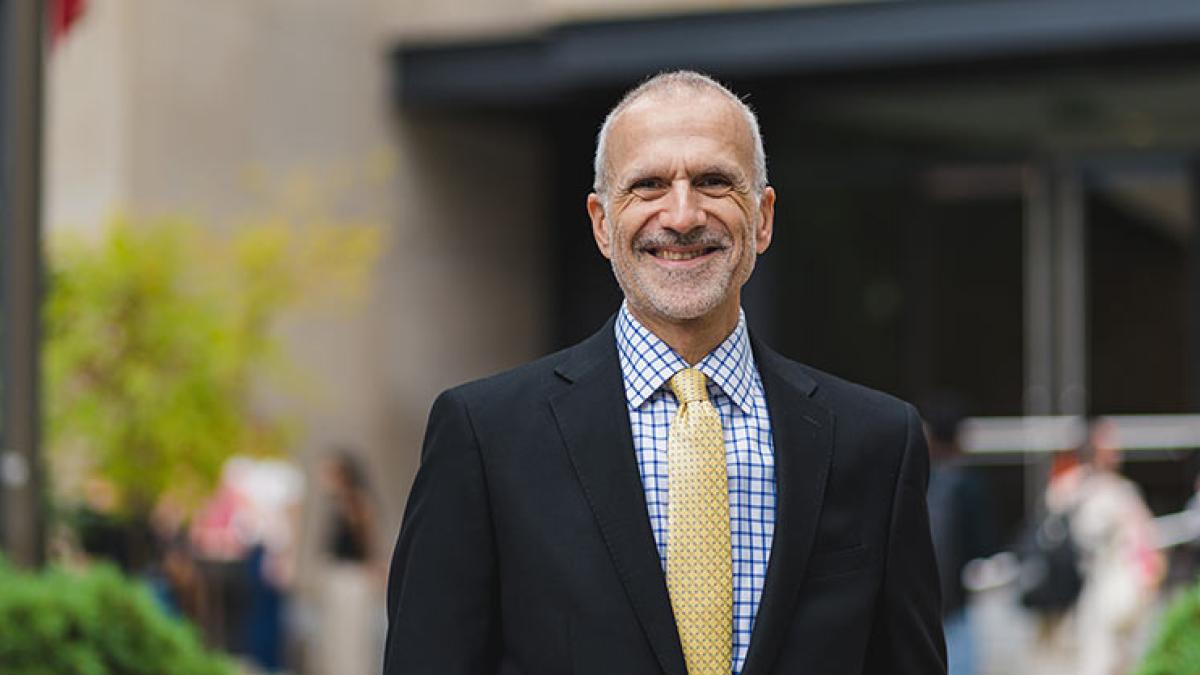
Making It Count On the Field and In the Classroom
Bryan Viglione '24 is making the most out of his time at the Lubin School of Business. Not only is he a member of Pace University's men's lacrosse team, but he also works as Chief Financial Officer of Pace Perk Cafe and as an accounting tutor in the Tutoring Center–all while working towards his BBA/MBA in Public Accounting. His involvement and leadership on-campus even landed him an internship at a Big Four firm.

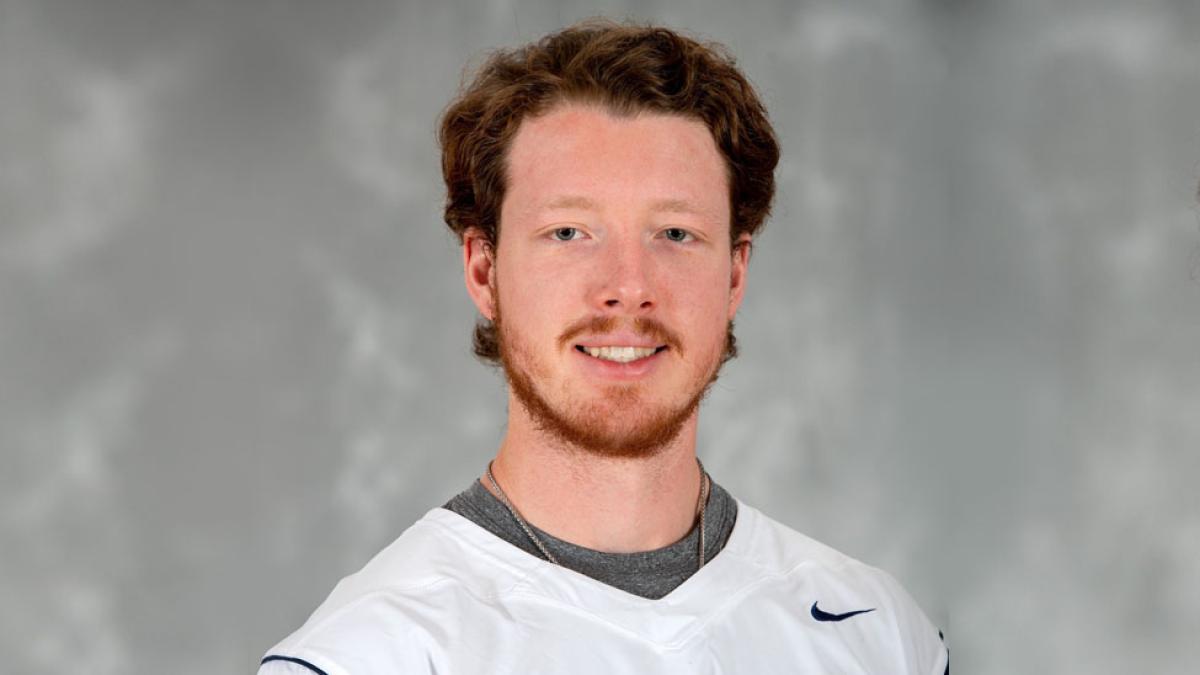
Bryan Viglione
Audit Associate, KPMG
Class of 2024
BBA/MBA in Public Accounting
Member Of: Men's Lacrosse, Pace Perk Café
Pronouns: He/Him

Bryan Viglione is making the most out of his time at the Lubin School of Business. Not only is he a member of Pace University's men's lacrosse team, but he also works as Chief Financial Officer of Pace Perk Café and as an accounting tutor in the Tutoring Center—all while working towards his BBA/MBA in Public Accounting. His involvement and leadership on-campus even landed him an internship at a Big Four firm.
Why did you choose Pace University and the Lubin School of Business?
I chose Pace University for the outstanding reputation of the Lubin School of Business and because it was the perfect fit for me athletically.
How have athletics on campus helped enrich your student experience?
Playing lacrosse has enriched my college experience since my very first day. While most people move onto campus the first day knowing very few people, I moved in and immediately had over 50 friends.
What has been your favorite opportunity at Pace?
My favorite opportunity so far has been being chosen to wear jersey #18 on the lacrosse team. Every year, #18 is passed down to a senior who has proved to be a great leader and an even better teammate. Historically, #18 is given to someone who consistently shows great character in all aspects of their day-to-day life.
You serve as Chief Financial Officer of Pace Perk Café. How have your business classes helped prepare you for this role?
My accounting classes have greatly prepared me for this role. When I was the Assistant Chief Financial Officer, I was responsible for accurately creating necessary journal entries to record sales and expenses. Now that I am the Chief Financial Officer, my role is mostly from an analytical perspective. Since my classes have taught me how profitable businesses should be holding their accounting standards, I am able to review all our financial statements and make decisions on how to help the business grow.
Prior to accepting an internship with KPMG, my biggest talking point in my interviews was being the CFO of a legitimate business. During my interviews, hiring managers said very few applicants had the applicable, real-life experience that I acquired as the Chief Financial Officer of Pace Perk.
How will your experience at Pace Perk Café help you get ahead in your career?
Prior to accepting an internship with KPMG, my biggest talking point in my interviews was being the CFO of a legitimate business. During my interviews, hiring managers said very few applicants had the applicable, real-life experience that I acquired as the Chief Financial Officer of Pace Perk.
Do you have any advice for other Lubin students?
My advice for other Lubin students is to get involved. If you spend your whole college career staying in the dorms and just going to class, you are not getting the full experience. Pace has so many clubs and employment opportunities that are enjoyable (and a great way to make friends) and set you up to be successful in the future.
Connect with Bryan:
Danielle and Michael Tallman '24: A Sibling Story
Siblings Danielle and Michael Tallman grew up in a tight-knit multigenerational Hispanic household in Sacramento, California, along with their siblings where they were homeschooled until college. After their oldest sibling was accepted to college in Texas, their entire family moved with her to support her dreams.
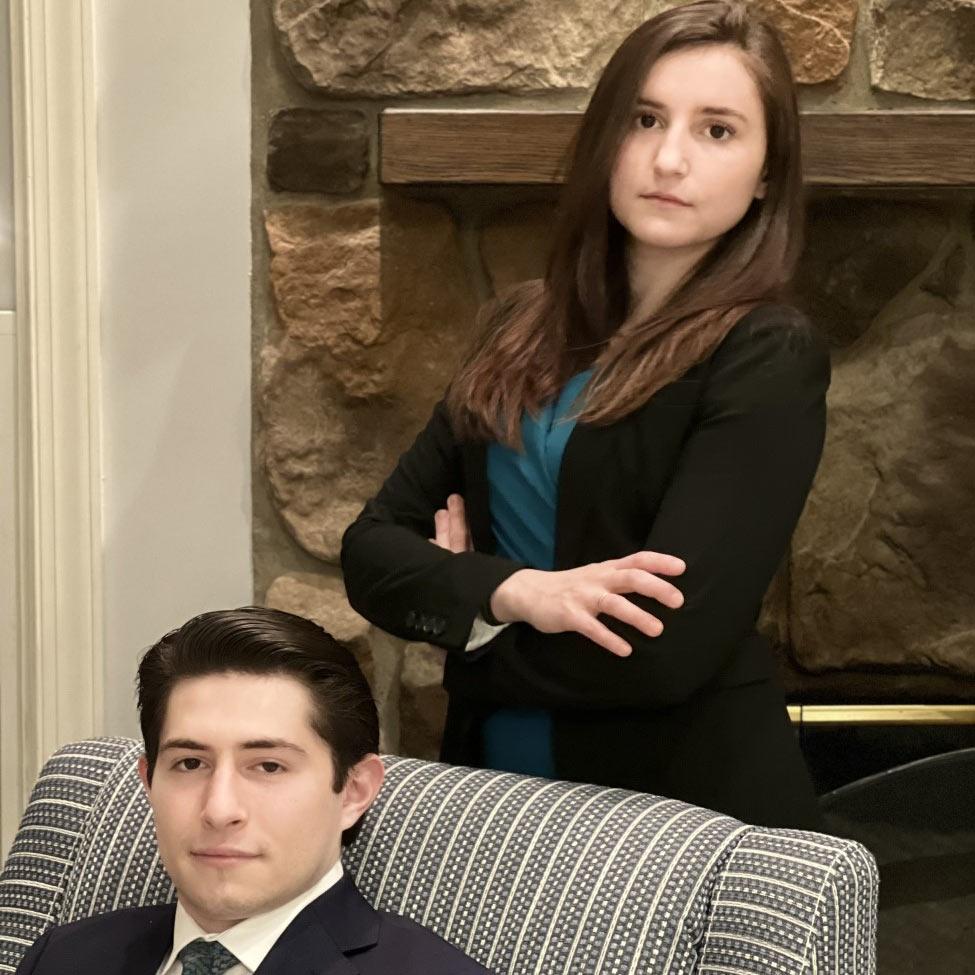
Siblings Danielle and Michael Tallman grew up in a tight-knit multigenerational Hispanic household in Sacramento, California, along with their siblings where they were homeschooled until college. After their oldest sibling was accepted to college in Texas, their entire family moved with her to support her dreams. Both Danielle and Michael decided to study at the University of St. Thomas together setting the precedence and foundation for their “united educational front” as Danielle describes it. When Danielle and Michael began thinking about law school it only made sense to them that they would jointly apply to the same institutions.
For Danielle, her desire to attend law school grew out of the belief that everyone deserves to have a voice. “Unfortunately, not everyone knows how to positively use their voices in order to enact change,” said Danielle. “I want to help give a voice to those who are unheard; to help those who either can’t or won’t stand up for themselves, and to guide them to fight for what they deserve. I believe that there are certain flaws in our justice system today. I want to be able to help change the laws that are unjust, enact change that benefits others, and give power to the voiceless because everyone deserves someone to stand up for them. I want to be that person; a career in law perfectly fits the bill.”
For Michael, a strategist at heart, he discovered in college how much strategy there is in the field of law. “I was a criminology major during my undergraduate studies, and a large amount of my instructors were retired and even practicing lawyers,” said Michael. “This proved very exciting for me. I finally found a sense of clarity and passion. It was then that I decided to pursue law as a profession.”
Both Danielle and Michael describe their Haub Law experience as a rollercoaster of emotions – challenging and stimulating at the same time. They both note the impressive caliber of both students and faculty and that while the expectations are high, so is the rewarding feeling of personal accomplishment. For Danielle, she has most enjoyed sharing this experience with her brother and most looks forward to graduating together.
After graduation, both Danielle and Michael have a strong interest in becoming university professors at the same school, teaching corporation and business focus topics, along with contract law. Danielle credits professors Robert Ellison, Debra Vollweiler, and Elyse Diamond for her decision to pursue a field in education. “After two years studying law, I have learned that the most influential change begins with a good teacher,” she said. “Their eagerness to help their students, their openness, and their love of teaching and their subject, allowed me to realize that the most rewarding legal experiences come from your professors.” For Michael, he thanks Professor Elyse Diamond for helping to jump start his positive law school experience. “She taught Legal Skills and from an academic perspective, she helped to teach me to shape my writing in a more analytical and legal way; proving to me that persuading someone with my words alone is the essence of being a good lawyer,” said Michael. “Professor Diamond answered patiently any questions that I may have had and provided feedback on every writing assignment that I turned into her. I felt very blessed to have had her as one of my first professors in law school.”
In their free time, both Danielle and Michael enjoy spending time with their family. “I love to come home after a long day of school or work to my family,” said Michael. “In a time of my life where everything is so busy and hectic, the small fact that family is always there when I walk through the door, no matter how great or disappointing my day has been, is my favorite hobby. Both Danielle and Michael also enjoy singing. For Danielle, she is passionate about opera and for Michael, it is singing kids songs to his nieces and nephews.
As far as advice for prospective law students, both Danielle and Michael agree that students should be prepared for the challenge because law school is nothing like undergraduate school. “You will have to study harder and feel stronger disappointments,” said Danielle. “You'll do your best and will probably fall short. But when times are tough and you feel like quitting, just remember why you enrolled in law school in the first place. Even if you don’t initially thrive, it doesn't mean that you will not succeed in the end.” While each have learned tough lessons, they have pushed through and as Michael notes, just when you try, fail, and want to quit – you will be inspired. Now, in the last part of his Haub Law education, as he enters the next part of his legal journey, Michael hopes he can carry the teachings that he has learned from Haub Law into the legal field with him.
Pace School of Performing Arts Hosts Two-Time Tony Award Nominee Denis Jones
Pace School of Performing Arts, located in lower Manhattan, is a proud partner in the development of new works for stage and screen. Director and choreographer Denis Jones will be working with students at Pace School of Performing Arts on the development of a new show titled, BANKSY. Just as the artist Banksy is anonymous, so is the author of this newly workshopped production. Created as a play with music and set in present-day London, BANKSY is a modern reimagining of the life of the world’s most famous street artist, and her efforts to fight the British government’s intention to enact policies harmful to women.

Pace School of Performing Arts, located in lower Manhattan, is a proud partner in the development of new works for stage and screen. Director and choreographer Denis Jones will be working with students at Pace School of Performing Arts on the development of a new show titled, BANKSY. Just as the artist Banksy is anonymous, so is the author of this newly workshopped production. Created as a play with music and set in present-day London, BANKSY is a modern reimagining of the life of the world’s most famous street artist, and her efforts to fight the British government’s intention to enact policies harmful to women.
The play centers around Scarlet Davies, the 24-year-old socialite daughter of the Prime Minister, who is the elusive street artist Banksy, a fact unknown to her father and the rest of the nation. Convinced her father and his right-hand man, Commissioner Gunn, are pursuing policies dangerous to England’s girls and women, Banksy hopes a series of high-profile stunts designed to mock and expose the Prime Minister and his underling will rally the people of England against her father’s government.
Though BANKSY is a fictional story, long-held legal rights for women are being obliterated in the real world. As Banksy the character seeks to draw attention to the threat women face in England, BANKSY the play seeks to illuminate the theme of fighting for our rights and the future we choose for ourselves.
The two-time Tony award nominee, Denis Jones (whose work has been seen on Broadway, around the country and around the world), along with an Anonymous playwright, are working alongside acting, design and stage management students at Pace University’s School of Performing Arts to workshop this new and inspirational piece of work. The team will have rehearsed for two weeks to bring this stage reading to life in the Michael Schimmel Center of the Arts.
Performances are free, and will take place on Friday, March 31 at 7:30 p.m., and Saturday April 1 at 3:00 p.m. and 7:30 p.m. Make reservations. For more information, please email PPA@pace.edu.
About Pace University
Pace University has a proud history of preparing its diverse student body for a lifetime of professional success because of its unique programs that combine immersive academics and real-world experiences. Pace is ranked the #1 private, four-year college in the nation for upward economic mobility by Harvard University’s Opportunity Insights, evidence of the transformative education the University provides.
About Pace School of Performing Arts
Pace Performing Arts is a cutting-edge performing arts school that nurtures courageous artistic innovation and develops the future leaders and changemakers in the profession. Pace Performing Arts students and recent alumni have appeared on Broadway and behind the scenes in: & Juliet, A Beautiful Noise, A Strange Loop, Almost Famous, Hadestown, Hamilton, Kimberly Akimbo, MJ The Musical, Moulin Rouge, Ohio State Murders, Wicked and fourteen Commercial Dance alumni and students among Rockettes in 2022 Radio City Christmas Spectacular. Pace Performing Arts is one of the 10 most represented colleges on Broadway - per Playbill, 2022.
About Dyson College of Arts and Sciences
Pace University’s liberal arts college, Dyson College, offers more than 50 programs, spanning the arts and humanities, natural sciences, social sciences, and pre-professional programs (including pre-medicine, pre-veterinary, and pre-law), as well as many courses that fulfill core curriculum requirements. The College offers access to numerous opportunities for internships, cooperative education and other hands-on learning experiences that complement in-class learning in preparing graduates for career and graduate/professional education choices.
Why Daylight Saving Time Might Mess Up Our Sleep
The day after switching to daylight saving time, suicide rates were found to rise by 6% by Eric Osborne-Christenson, an assistant professor of economics and associate chair of the Economics Department at Pace University, as published in the journal Health Economics. While it’s still up for debate on which time will be used, research suggests that a change needs to be made.
COVID Pandemic had 'Minimal' Effect on Mental Health, Study Says. Is That True?
"People are considerably more resilient than is commonly assumed, so I did not anticipate substantial mental health effects," said Anthony Mancini (opens in new tab), a clinical psychologist at Pace University who was not involved in the current study but who published similar findings in the journal Psychological Medicine (opens in new tab) in 2021. Lockdowns may have cut both ways on mental health, Mancini added. Although they ripped people from their daily routines and increased isolation, they also cut down on stressful day-to-day hassles like commuting.
Busted: Trump Attorneys Headed to Court to Explain Two-Trial Deadline Scam
Pace University Law Professor Randolph M. McLaughlin equated Trump's legal team's actions to those of children.
"When children do this — go from one parent to another — if the parents aren’t aware of what the kid is doing, the kid can get away with things. But once the parent is aware the child is playing them against each other, the game is over,” he explained.
Trump Gets Caught Trying to Play Judges to Manufacture Trial Delays
McLaughlin stressed how rare it is for a lawyer to do what Kaplan did: contact a judge in a separate case to flag questionable behavior. “I’ve never seen a situation like this where a lawyer who’s not before the court puts the court on notice on what the defendant is doing in the federal case. I think Engoron is going to slam with this,” McLaughlin said. “It’s highly irregular. Then again, we’ve never seen so many actions filed against one person all over the place.”
Selling The Hamptons With Sean Gray '19
BBA in Arts and Entertainment Management alumnus Sean Gray '19 joins The Lubin Link to share how the pandemic led him to a successful career in real estate, the importance of taking risks, and how he still finds time to tap into his creative side.
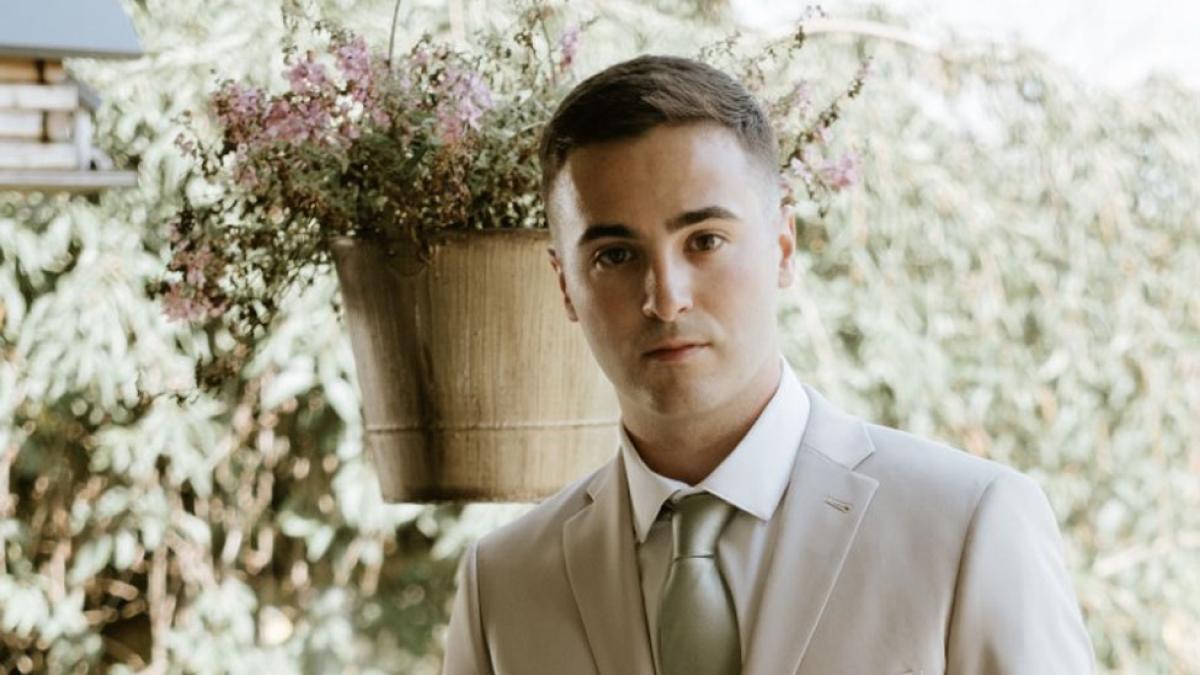
The Lubin Link Podcast
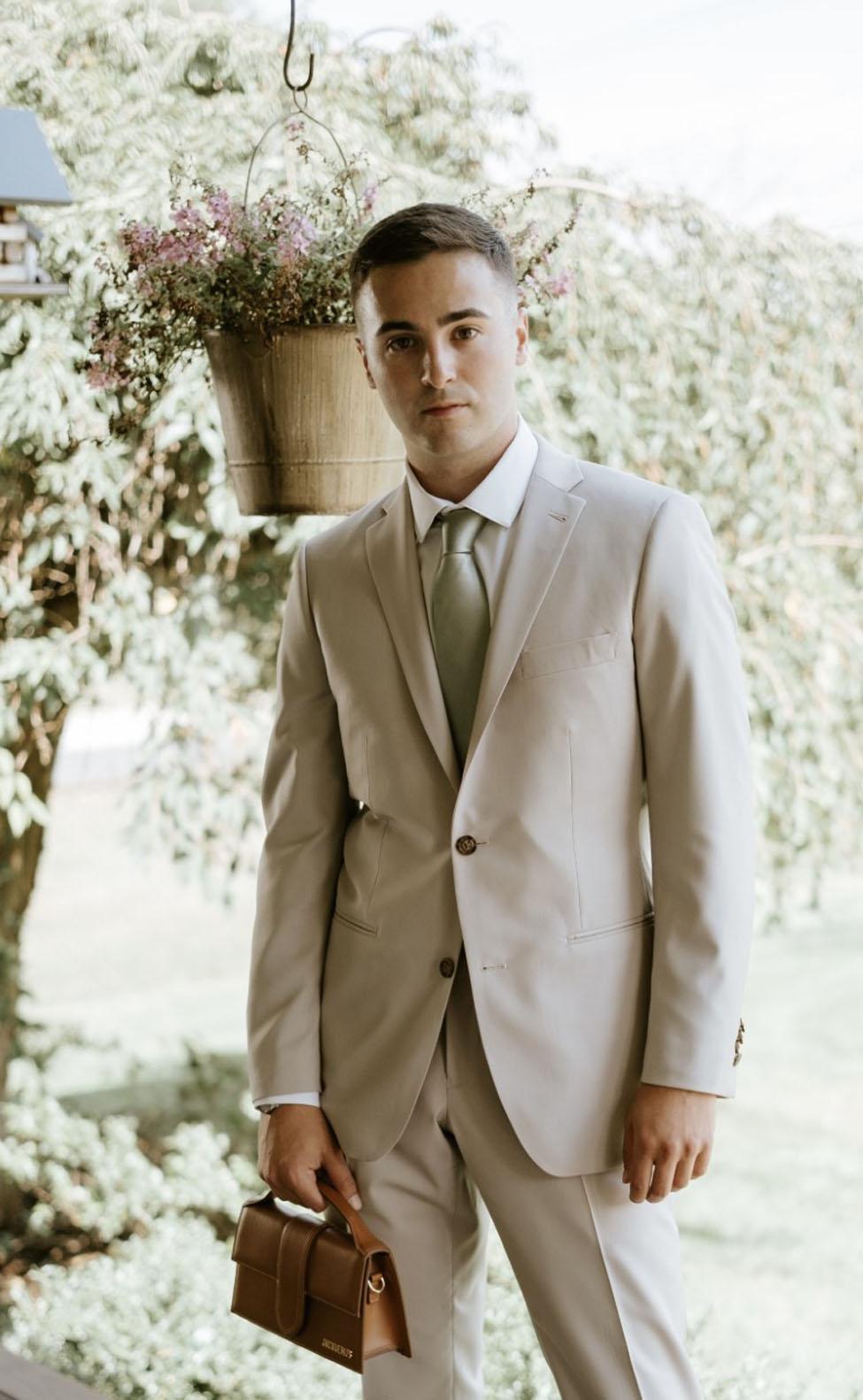
BBA in Arts and Entertainment Management alumnus Sean Gray '19 joins The Lubin Link to share how the pandemic led him to a successful career in real estate, the importance of taking risks, and how he still finds time to tap into his creative side.
This episode was recorded on March 14, 2023.
Tune into the Lubin Link podcast to hear how guests went from go-getting Lubin students to successful entrepreneurs, social media mavens, directors, CEOs, and beyond. They offer their best tips to students and share how you can make the most out of your #LubinLife.